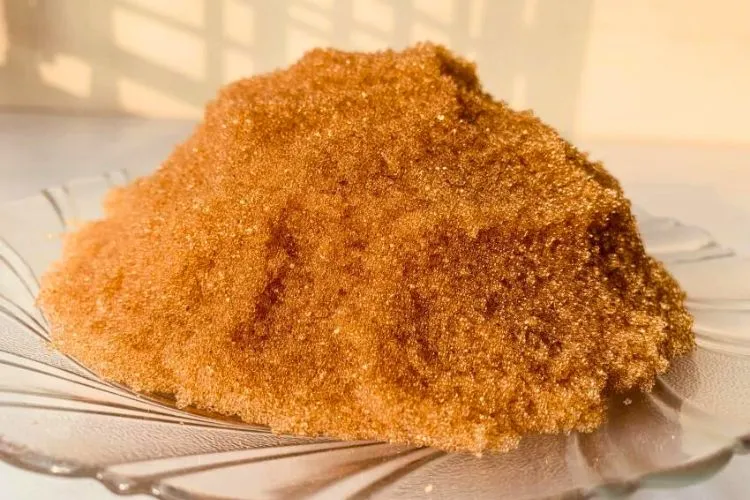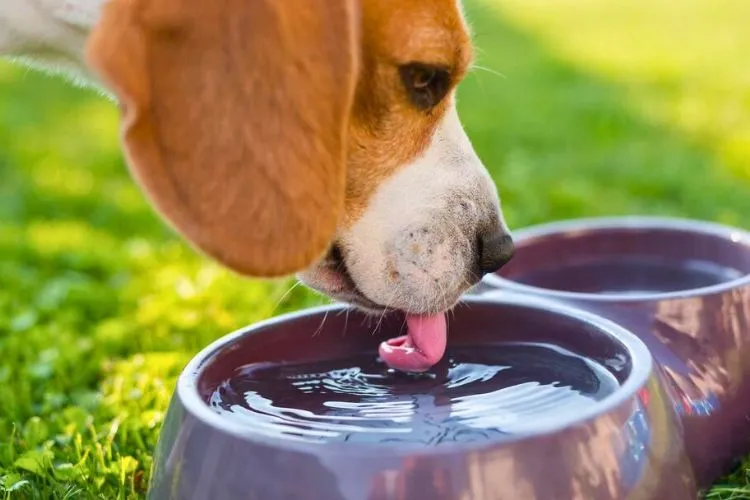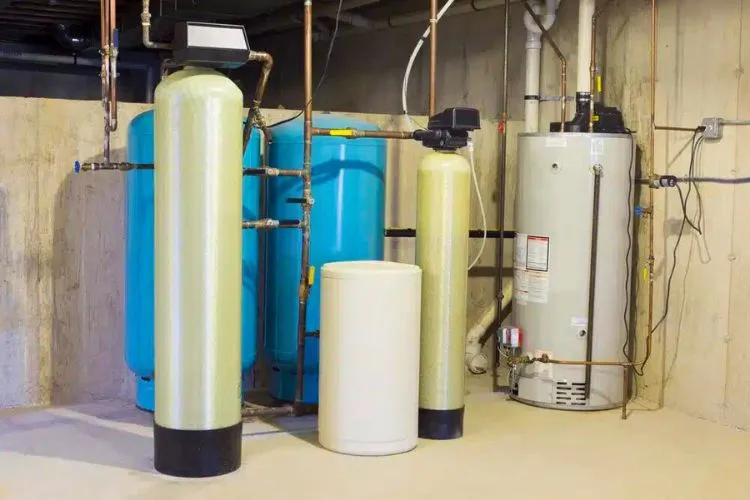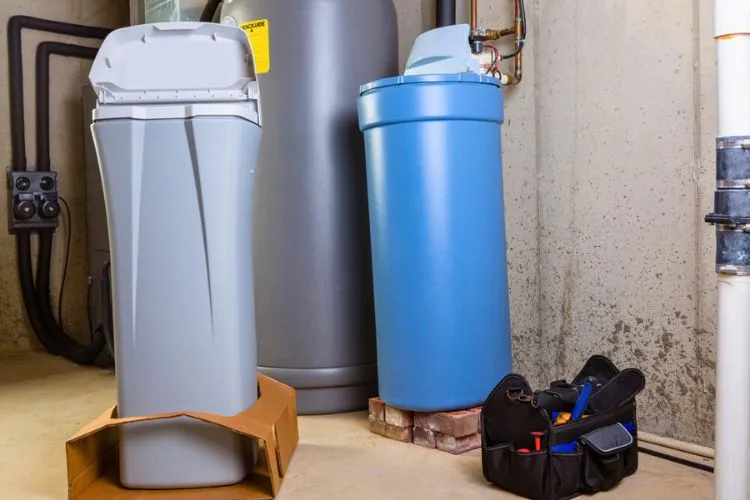Water, the source of life, often conceals numerous secrets, and water softener resin is one such unexplored area.
As a critical component in our water softening systems, its safety has been a subject of debate lately.
So, is water softener resin toxic? Could it pose a threat to our health or the environment?
This article will delve into scientific studies, expert opinions, and fundamental principles to unveil the truth about the safety of water softener resin.

Join us as we demystify the complex world of water treatment systems and their potential health implications.
💦 Is water softener resin toxic?
Water softener resin is not considered toxic. In water softening systems, resin beads filter out hard minerals but never physically enter the water supply.
The ion-exchange process might leave negligible sodium or potassium traces, but they’re generally safe.
However, improper maintenance can lead to bacterial contamination or resin beads leakage — but these are not normative situations.
Additionally, the used resin should be disposed of correctly due to its non-biodegradable nature. To summarize, while there are potential issues related to maintenance and disposal, the resin itself isn’t toxic to human health under normal operational conditions.
💦 Is water softener resin toxic to dogs?
Water softener resin is not generally considered toxic to dogs or humans under normal circumstances.
The main function of these resins is to filter out hard minerals in water through an ion-exchange process, without ever physically entering the water supply.
Even if ingested, water softener resin is unlikely to cause significant harm.

However, it’s important to note that the malfunctioning of the water softener system could lead to issues such as resin bead leakage, which if ingested by dogs, might cause discomfort or digestive issues.
In rare instances where dogs ingest excessive water softener salt, symptoms like stomach pain and vomiting may occur. Hence, proper maintenance of the system is essential to prevent any such incidents.
On the environmental side, while the resin itself is not toxic, it is non-biodegradable and should be disposed of responsibly.
In summary, while water softener resin in itself is not toxic to dogs, potential issues may arise due to system leakage or improper maintenance.
💦 Is water softener resin hazardous waste?
Water softener resin is not typically classified as hazardous waste. The resin is primarily composed of polystyrene divinylbenzene, which is non-toxic and non-reactive.
However, once the resin has exhausted its lifespan, it becomes an environmental issue due to its non-biodegradable nature. This means it doesn’t readily break down in a landfill and could contribute to environmental waste problems.
Also, depending on the specific usage and impurities in the hard water, the spent resin may accumulate trace amounts of heavy metals or other contaminants.
If these concentrations are high enough, disposal may be more complicated, needing to align with regulations on hazardous waste disposal.
Thus, while water softener resin itself is not hazardous, proper disposal methods should be practiced to minimize environmental impact. Ideally, spent resin can be regenerated or recycled to mitigate these problems.
Resin disposal should be handled in consultation with local waste authorities to comply with individual area guidelines and regulations.
💦 Can water softeners cause health problems?
While water softeners can improve water quality by reducing the presence of hard minerals, they could potentially cause some health concerns.
Primarily, these concerns relate to sodium levels.
Water softeners most commonly use a process called ion exchange, replacing the hard minerals in water with sodium atoms.

For most individuals, the sodium increase in water is slight, but people on a low-sodium diet due to hypertension or other heart-related conditions might be affected.
Researchers at Verywell Health note that this sodium intake could potentially raise blood pressure.
Additionally, drinking softened water might have side effects due to the sodium content. As water softeners infuse water with sodium ions, there could be implications for people required to limit their sodium intake.
However, the sodium content contributed by water softeners is lower compared to dietary sources.
Furthermore, Andrew Weil, M.D., highlights that it’s also possible for small amounts of sodium to be absorbed through the skin while bathing in softened water.
Proper use and maintenance of water softeners can significantly mitigate these potential risks. It’s always a good idea to consult with a healthcare provider if you have specific health-related concerns.
💦 Why are water softeners banned in some states?
Water softeners are banned in some states due to environmental reasons. Traditional salt-based softeners replace hard minerals like calcium and magnesium in water with sodium through a process known as ion exchange.
This process produces a saline waste that enters the wastewater stream.

These high levels of salts, primarily sodium and chloride, can make it difficult or nearly impossible for wastewater treatment plants to further clean this water to a level fit for reintroducing it back into the environment.
Areas with a lack of freshwater resources often recycle wastewater for irrigation, and the heightened salt levels from softeners can harm soil structure and plant life.
Given these factors, states with strict water regulations or scarcity issues, like California, have enacted regulations or bans on certain types of ion-exchange water softeners to protect their water resources.
💦 Alternative Solutions to Traditional Water Softeners
While traditional ion-exchange softeners play an essential role in reducing water hardness, they are not without their drawbacks, particularly concerning sodium addition to the water and their impact on the environment.
This has led to the exploration and rise of alternative water softening technologies that offer benefits without these downsides.
One such promising technology is the template-assisted crystallization (TAC), which transforms dissolved calcium and magnesium minerals into stable crystals that do not attach to surfaces. Unlike traditional softeners, TAC systems don’t replace minerals with sodium, thus avoiding increased salinity in the water.
Another innovative approach is the use of electromagnetic water conditioners. These devices, which attach to the outside of the pipes, use a magnetic field to alter the electromagnetic properties of the calcium ions.
This change purportedly prevents the ions from forming scale. While the scientific community still debates the effectiveness of these devices, several homeowners report less scaling and easier cleaning since installation.
Furthermore, reverse osmosis (RO) systems offer a comprehensive solution by removing nearly all dissolved contaminants in water, not just hardness minerals.
RO systems can drastically reduce the total dissolved solids (TDS) but require more extensive installation and significantly more water to operate properly, leading to possible concerns over water wastage.
As environmental consciousness grows, so does the popularity of these alternative systems. They represent a shift towards technologies that provide scale prevention and water purification without the environmental and health concerns associated with traditional softening.
By incorporating these alternatives into water treatment strategies, homeowners have an opportunity to choose solutions that align more closely with their values and the specific needs of their households and local environments.
It is essential for consumers to consider these options, especially in regions where traditional softeners are restricted or banned due to their ecological impacts.
These advancements underscore the need for continuous research and adaptation in the field of water softening, aiming for solutions that safeguard health and the environment alike.
Conclusion
Water softener resin is generally recognized as non-toxic to humans and pets, including dogs.
While operating correctly, these resins serve to filter hard minerals from our water without ever entering the supply.
However, malfunctions leading to resin bead leakage could potentially cause minor digestive issues if ingested.
The resin is non-biodegradable, presenting an environmental issue when it comes to disposal. While it’s typically not classified as hazardous waste, proper disposal following local regulations is crucial.
Continuous research and advancement in the field are anticipated to address these challenges and contribute to safer and more efficient water softening techniques.

Devon Shorts, a seasoned expert with over a decade of experience in water safety, shares valuable insights on this blog “Aqua Safety Plus”. Trust his expertise to keep your water clean and your family safe.
